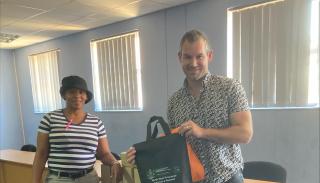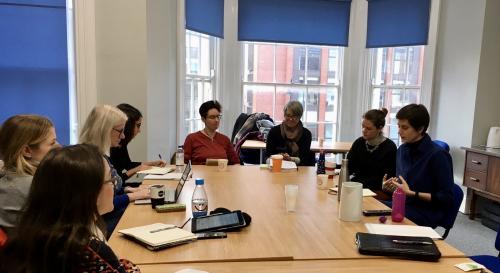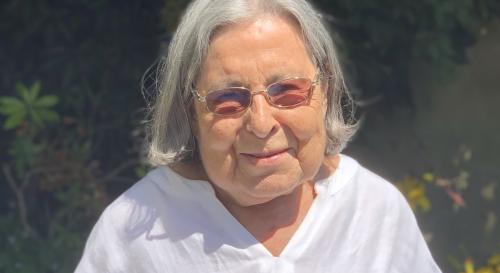
Breadcrumbs navigation
More than just the ‘‘Bop Lobby’’: Britain and the ‘‘independence’’ of Bophuthatswana
Dr Daniel Feather was awarded a BISA Early Career Small Research Grant (ECSRG). The grant helped Daniel to further develop his research into British policy towards Bophuthatswana and the South African ‘Bantustans’ more broadly. It allowed him to undertake a research trip to South Africa as well as a short visit to the UK National Archives. Here he discusses the project.
While I had already done a considerable amount of archival research in the UK prior to this award, the opportunity to travel to South Africa was key to producing the two outputs. Additionally, by engaging with sources in South Africa it meant that my research was not euro-centric in nature as it ensured that the South African voice was prominent within these outputs.
While initially intending to focus more broadly on UK-Bophuthatswana relations I quickly realised that a particular case study offered a fascinating insight into the complexities Bophuthatswana’s unrecognised ‘independence’ caused for British policymakers. This particular case involved the detention of seven British and one United States criminal who had engaged in fraudulent activities at a casino in Bophuthatswana. Having initially granted access to British consular officials, the Bophuthatswana ‘government’ withdrew access and demanded greater recognition of the territories ‘independence’ from Britain before they would allow any further consular visits. Access to the Bophuthatswana government records at the North West Provincial Archives in Mmbatho/Mahikeng was key to being able to provide a full analysis of this case study and ensured the Bophuthatswana perspective could be analysed. Additionally, the award also allowed me to undertake research at the South African National Archives, this allowed me to analyse the National Party governments approach to this issue. This was particular illuminating as it demonstrated that Bophuthatswana policymakers were acting autonomously, this furthering the recent shift in the scholarship on the ‘Bantustans’ which emphasises that, although some of their leaders have received much justified criticism for their close ties with the apartheid regime, they had far more agency than they have previously being credited with.
Additionally, while undertaking research at the Historical Papers Research Archive and the South African History Archive (both at the University of Witwatersrand, Johannesburg) I was able to unearth additional material for another project I was engaged with examining British policy toward KaNgwane. This was another ‘Bantustan’ which, unlike Bophuthatswana, refused to accept full ‘independence’ from South Africa. In particular, transcripts of speeches by KaNgwane Chief Minister Enos Mabuza were of significant importance to this project and have been used in another article which I have had published in History: The Journal of the Historical Association.

North West Provincial Archives, Mmbatho
I was also able to deliver a work in progress paper on the Bophuthatswana article while undertaking research at North West University (NWU), Mahikeng. This was invaluable in providing an opportunity to gain useful feedback from scholars at NWU with expertise in Bophuthatswana’s history. This allowed me to further my contacts in South African academia and resulted in my appointment as an ‘Extraordinary Researcher’ at NWU.

My staff card as part of my honorary appointment at North West University, Mahikeng
I will deliver a paper about this project at the British International History Group annual conference in September which I hope will garner greater interest in my work as well as providing an opportunity to gain feedback from other scholars.
I am also currently working on a larger external grant application which would look at British policy towards the Bantustans more broadly. As part of this project, I hope to appoint a post-doctoral research assistant with a political science background to help further the interdisciplinary nature of this research.
I envisage four articles emerging from this broader project. At least one of these will take my research into UK-Bophuthatswana further and I will credit BISA with their invaluable support in allowing me to undertake archival research in South Africa. This article will focus on the extent to which the ‘Bob Lobby’ – the informal name given to a group of sympathetic British MPs who advocated on Bophuthatswana’s behalf – was an affective pressure group.


